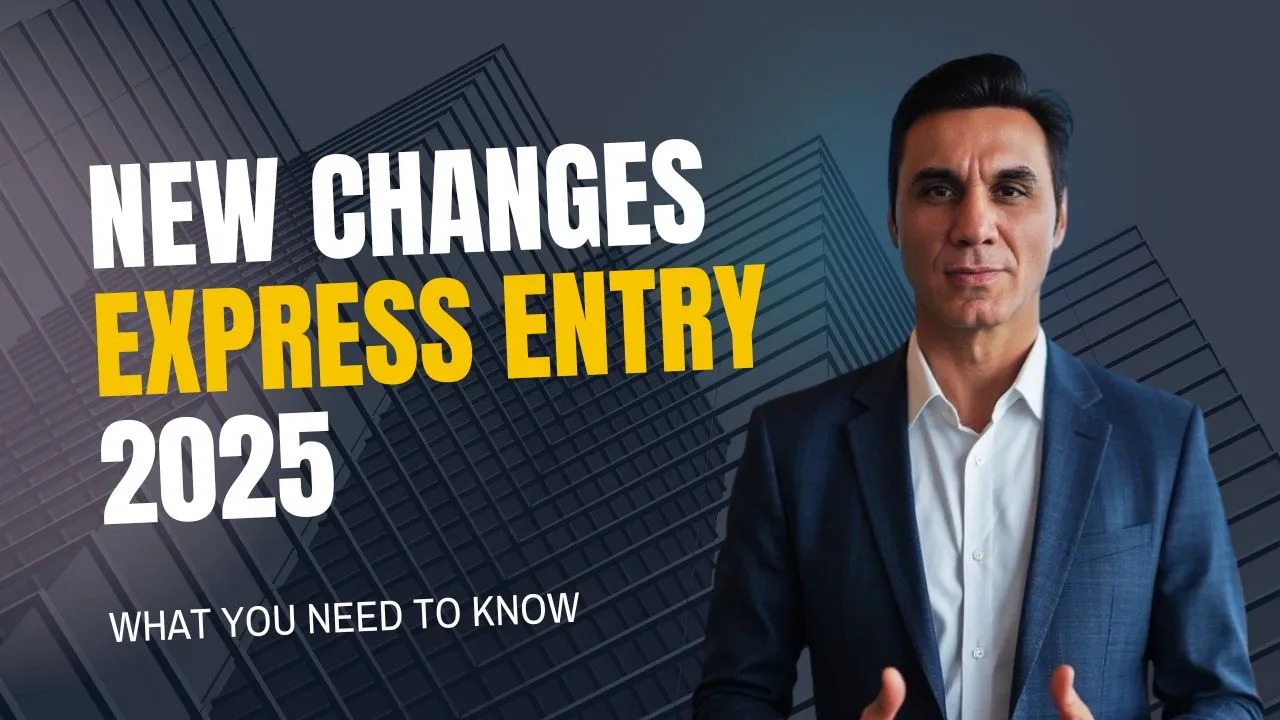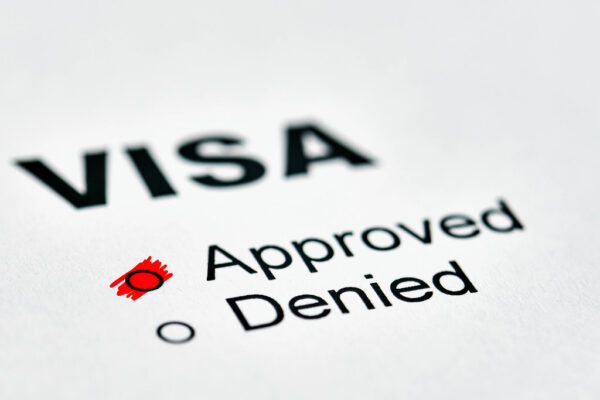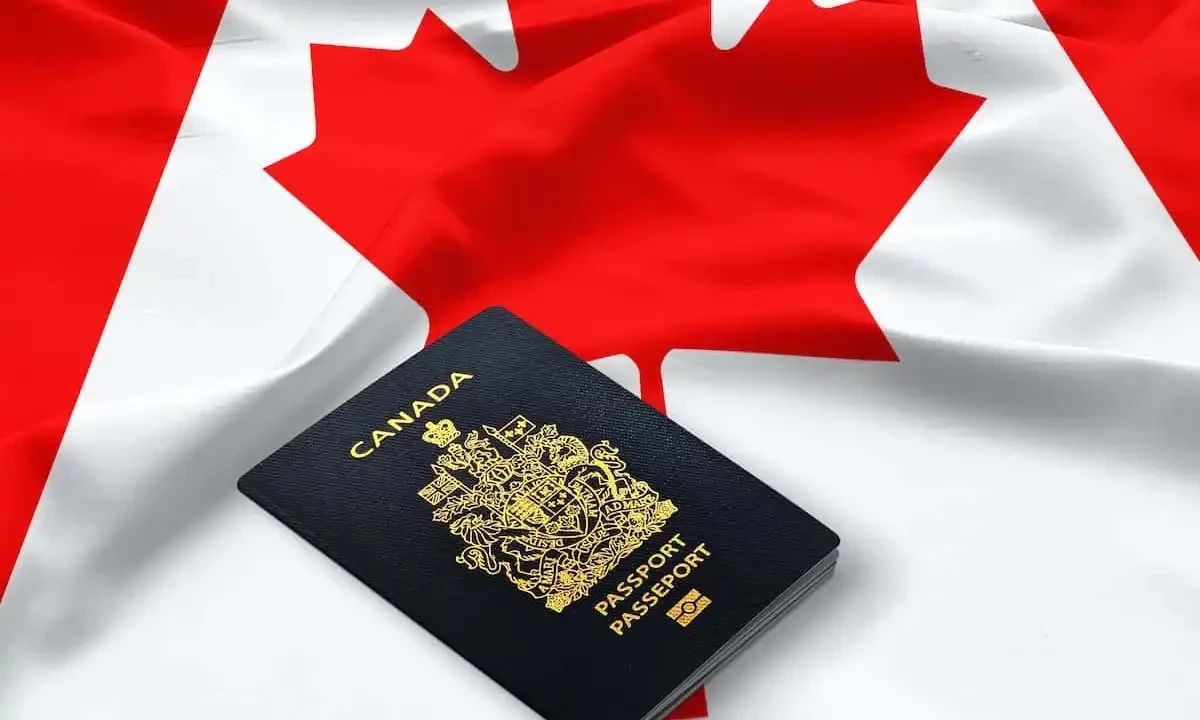Immigration Refugees and Citizenship Canada (IRCC) has issued more invitiations to apply (ITAs) through the Express Entry system.
The immigration department issued 825 ITAs to candidates in a Provincial Nominee Program (PNP) draw.
To be considered for this draw, candidates needed to have:
- A minimum Comprehensive Ranking System (CRS) score of 764; and
- Created an Express Entry profile before 6:35 pm, Universal Coordinated Time (UTC) on 17 August 2024.
See your eligibility for all Express Entry streams
Summary of Express Entry draws in 2025
| Date | Draw Type | Number of ITAs | Cut-off CRS score |
|---|---|---|---|
| April 14 | Provincial Nominee Program | 825 | 764 |
| March 21 | French language proficiency | 7,500 | 379 |
| March 17 | Provincial Nominee Program | 536 | 736 |
| March 6 | French language proficiency | 4,500 | 410 |
| March 3 | Provincial Nominee Program | 725 | 667 |
| February 19 | French language proficiency | 6,500 | 428 |
| February 17 | Provincial Nominee Program | 646 | 750 |
| February 5 | Canadian Experience Class | 4,000 | 521 |
| February 4 | Provincial Nominee Program | 455 | 802 |
| January 23 | Canadian Experience Class | 4,000 | 527 |
| January 8 | Canadian Experience Class | 1,350 | 542 |
| January 7 | Provincial Nominee Program | 471 | 793 |
Today’s draw is the first of the month and follows the consequential removal of CRS points for arranged employment, a French-language proficiency draw on 21 March, and another PNP draw on 17 March.
Thus far IRCC has issued 31,508 ITAs to candidates in 2025 through the Express Entry system.
Per the 2025-2027 Immigration Levels Plan, Canada hopes to welcome 124,680 new permanent residents through the Express Entry system in 2025.
Note that figures counted in the Immigration Levels Plan account for immigrant landings/admissions and not ITAs. An immigrant landing is when a new permanent resident arrives in Canada for the first time under their new status and completes the permanent residence (PR) process. This is when immigrants formally become new permanent residents.
An ITA, on the other hand, is an invitation to apply for PR. One ITA is not necessarily equivalent to one landing due to the possibility of ITAs being issued to individuals who are not eligible or returned to IRCC by the candidate. In addition, if an application for PR is refused by the immigration department, this will also result in an ITA being issued without leading to a landing.
How to respond to IRCC if you have received an ITA
If you have received an ITA through your Express Entry profile, you will need to respond to this invitation with an application for permanent residence if you wish to apply. Candidates who do not decline the ITA and who do not submit an application for PR will see their
Candidates are given 60 days from the issuance of an ITA to submit a complete application for PR to Canada’s immigration department.
Once an ITA is received, candidates will need to gather certain documents that IRCC requires them to present. Among these are:
- Copies of a valid passport or travel document;
- Copies of your birth certificate;
- Documentation attesting to work experience;
- Police clearance certificates;
- Results from an immigration medical exam;
- Proof of settlement funds; and
- Photographs of the principal applicant and family members included in the application.
For more information on responding to an ITA received through the Express Entry system, visit our dedicated webpage.
Occupations listed under the updated STEM category in 2025
Following the changes in February 2025, the STEM category has 11 occupations in total.
You can find the full list of occupations along with their corresponding National Occupation Classification (NOC) codes below, with the newly added occupations bolded.
| Occupation | NOC code |
| Architecture and science managers | 20011 |
| Civil engineering technologists and technicians | 22300 |
| Civil Engineers | 21300 |
| Cybersecurity specialists | 21220 |
| Electrical and electronics engineering technologists and technicians | 22310 |
| Electrical and electronics engineers | 21310 |
| Geological Engineers | 21331 |
| Industrial and manufacturing engineers | 21321 |
| Insurance agents and brokers | 63100 |
| Mechanical Engineering Technologists and Technicians | 22301 |
| Mechanical Engineers | 21301 |
Canada’s National Occupation Classification (NOC) system classifies jobs according to the roles and responsibilities of each occupation. The title corresponding to your NOC code may be different from your job title.
How do I determine whether my work experience is eligible for an Express Entry category?
To be eligible for a category, you must have accumulated at least six months of full-time continuous work experience (or an equal amount of part-time experience) within the past three years in a category-eligible occupation (be it in Canada or abroad).
You also have to meet the minimum criteria for Express Entry, including being eligible for one of the three immigration programs it covers, namely:
- Canadian Experience Class
- Federal Skilled Worker Program
- Federal Skilled Trades Program.
If you are eligible, the next step is to find out if your work experience corresponds to the requirements of the eligible occupations listed.
Step 1: Visiting the Government of Canada’s NOC page and finding the NOC code and occupation that corresponds most closely with your work experience.
Type your job title(s) or other keywords into the “Filter items” search bar. If you don’t find a NOC code, try variations of your job title(s).
Take note of the NOC code(s) which correspond(s) most closely to the work experience for each role you have held in your career, for which you have worked full-time for at least six continuous months during the past three years.
Step 2: Verify this against the Employment and Social Development Canada (ESDC) webpage by clicking on the “Search by NOC Code” tab, looking up each NOC code that corresponds to your work experience.
This will tell you example titles of each NOC code, along with a list of duties that align with each occupation.
Cross reference the duties involved in each role of your work experience with the actions in the lead statement of each NOC code. For your role to be considered to correspond to a given NOC, you must have performed a substantial number of the main duties of the occupation, as set out in the NOC description.
Step 3: Check if one of your NOC codes is in the table above. If it is, you are eligible for the STEM category.
Newly added occupations to the STEM category with alternate job titles
Here’s a look at the occupations that were added to the STEM category in February 2025. It also lists some alternate or example job titles of the eligible occupations.
| NOC Occupation title | Example Job Titles |
| Civil engineering technologists and technicians | Bridge design technician Building materials technician Construction specifications writer Construction technologist Foundation technologist Highway technician Municipal engineering assistant Soil technologist – civil engineering Structural design technologist Structural investigator |
| Electrical and electronics engineering technologists and technicians | Communications technologist Electricity distribution network technologist Electronics design technologist Electronics engineering technician Electronics engineering technologist Electronics manufacturing technician Electronics manufacturing technologist Lighting technologist Metering technologist Microwave maintenance technician Production support technician – electronics manufacturing |
| Geological Engineers | Geophysical engineer Hydrogeological engineer – engineering |
| Mechanical Engineering Technologists and Technicians | Aeronautical technologist Heating designer Heating, ventilation and air conditioning (HVAC) technologist Machine designer Marine engineering technologist Mechanical technologist Mould designer Thermal station technician Tool and die designer Tool designer |
| Mechanical Engineers | Acoustics engineer Automotive engineer Design engineer – mechanical Energy conservation engineer Fluid mechanics engineer Heating, ventilation and air conditioning (HVAC) engineer Mechanical maintenance engineer Nuclear engineer Piping engineer Power generation engineer Refrigeration engineer Robotics engineer Thermal design engineer Tool engineer |
| Insurance agents and brokers | Insurance sales representative Insurance sales supervisor |
Removed occupations
The following occupations used to be part of the STEM category, prior to having been removed in February of 2025:
| Job Title | NOC Code |
| Architects | 21200 |
| Business systems specialists | 21221 |
| Computer and information systems managers | 20012 |
| Computer engineers (except software engineers and designers) | 21311 |
| Computer systems developers and programmers | 21230 |
| Data scientists | 21211 |
| Database analysts and data administrators | 21223 |
| Engineering managers | 20010 |
| Information systems specialists | 21222 |
| Land surveyors | 21203 |
| Landscape Architects | 21201 |
| Mathematicians, statisticians and actuaries | 21210 |
| Metallurgical and materials engineers | 21322 |
| Natural and applied science policy researchers, consultants, and program officers | 41400 |
| Software developers and programmers | 21232 |
| Software engineers and designers | 21231 |
| Urban and land use planners | 21202 |
| Web designers | 21233 |
| Web developers and programmers | 21234 |
How can Express Entry categories help my chances of becoming a Canadian PR?
If you qualify for a category-based draw, you have a better chance of receiving an invitation to apply (ITA) for permanent residence through Express Entry. This is because in a category-based draw, IRCC invites only those candidates who meet the category’s criteria, so these draws have a lower CRS cut-off score than general draws and Canadian Experience Class (CEC) draws.
For instance, in 2024, general draw CRS cut-offs ranged from 524 to 549. And the CRS cut-off for CEC draws ranged between 507 and 547.
But the STEM draw that year had a lower cut-off of 491, with 4,500 candidates receiving invitations to apply for PR.
So, even if your CRS score isn’t high enough (for example, 500 or above) for a general or CEC draw, you could still be invited if you work in an in-demand occupation.





